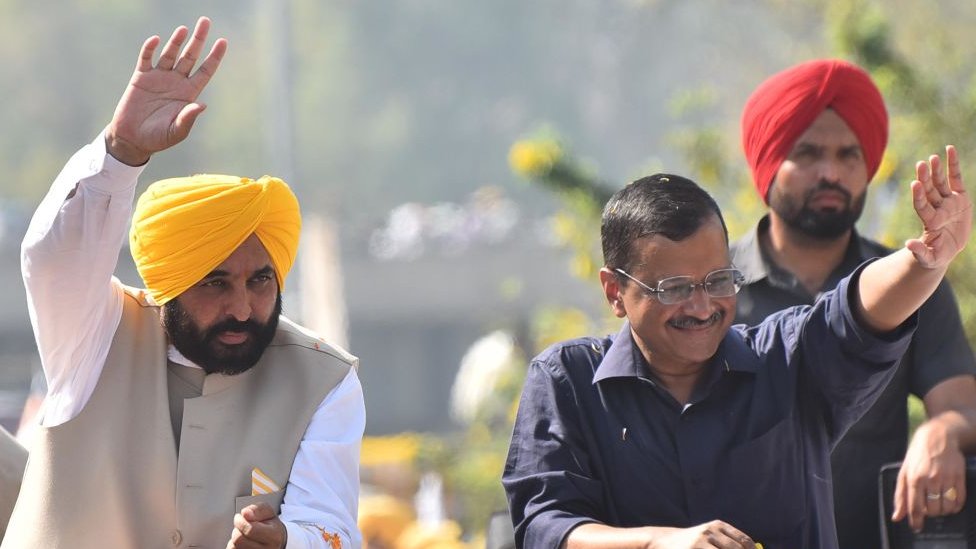
The Aam Aadmi Clinics were introduced by the Punjab government as part of its commitment to providing free primary healthcare to all residents. These clinics were seen as a key part of the government's promise to enhance healthcare accessibility, particularly in rural and underserved areas. Since their inception, the clinics have offered a range of services, including consultations, diagnostics, and essential medications. They gained considerable attention for their ambitious goals to address public health disparities in the state.
However, the initiative has faced significant financial challenges, with Punjab officials arguing that the Centre has failed to provide adequate funding to sustain the program. The state government claims that the federal allocation for the project has been insufficient to cover the operational costs, including salaries for medical personnel, infrastructure, and medicines. Punjab Health Minister, Dr. Balbir Singh, recently criticized the Union government for its perceived neglect in providing financial support, emphasizing that without the necessary funds, the future of the clinics is in jeopardy.
The clash over funding has highlighted broader tensions between the state and central governments. Punjab has long experienced a contentious relationship with the Centre, especially in matters related to fiscal autonomy and the distribution of resources. While both parties have expressed their commitment to public welfare, the current dispute over the clinics has raised questions about the effectiveness of cooperative federalism in India.
Despite these tensions, the Punjab government remains determined to continue the Aam Aadmi Clinics project, albeit under a new name. Sources within the Punjab administration suggest that the renaming is a strategic move to distance the initiative from the Aam Aadmi Party (AAP), the ruling political party in Punjab, which has faced criticism from opposition parties over its handling of the program. By rebranding the clinics, the state aims to reassert its control over the healthcare initiative and signal that the program is not solely a party-driven initiative, but a public service benefiting all citizens of Punjab.
The rebranding is also seen as an attempt to shift the narrative around the clinics. Initially launched under the banner of the AAP, the project has been accused by political opponents of being more about political gain than public health. By removing the association with the party, the Punjab government hopes to refocus public attention on the healthcare benefits of the clinics rather than the political affiliations behind them.
Experts note that the rebranding could also be a strategic response to the political environment in Punjab, where the ruling AAP faces significant opposition from both the Bharatiya Janata Party (BJP) and the Congress Party. The opposition parties have criticized the Punjab government’s handling of the healthcare program, arguing that it has been poorly managed and lacks sufficient resources. By renaming the clinics, the state government might be seeking to quell such criticisms and reinforce the perception that the initiative is a serious, non-partisan effort aimed at improving public health.
The funding dispute between the Punjab government and the Centre is part of a wider debate about the allocation of resources for public welfare projects. While state governments are often expected to implement federal policies, the question of who should bear the financial burden for such programs remains contentious. The Punjab case highlights the complexities of healthcare financing in India, where state governments often rely heavily on central grants and subsidies to fund ambitious initiatives. As the conflict over the Aam Aadmi Clinics continues, it could set a precedent for how future health projects are funded and managed across the country.
The name change is expected to take effect within the next few weeks, though the exact timing remains uncertain. The Punjab government has indicated that it will continue to seek alternative sources of funding to keep the clinics operational, including exploring partnerships with private healthcare providers and international organizations. However, officials have made it clear that any future success of the program depends on the Centre’s willingness to engage in constructive dialogue and provide adequate financial support.
While the dispute over the clinics’ funding has generated significant political debate, it has also sparked a broader conversation about healthcare access in India. Despite the political challenges, the Aam Aadmi Clinics have proven popular among residents, particularly those in rural areas where healthcare infrastructure is often lacking. For many, the clinics represent a vital lifeline, providing affordable and accessible healthcare services that might otherwise be out of reach.
